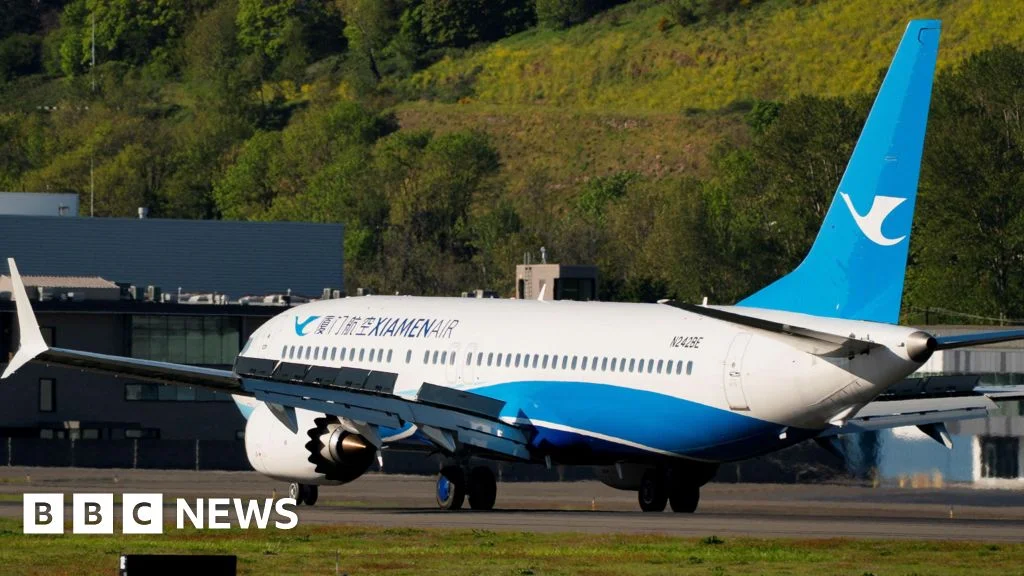
Is the Boeing Dream Grounded? Unpacking the Trade War’s Impact on China-US Aviation
The escalating trade war between the United States and China has taken a significant toll on the aerospace industry, particularly impacting Boeing's operations and relationships with its largest overseas customers. In an unexpected turn of events, Chinese airlines are actively rejecting new deliveries of Boeing jets, citing the burdensome tariffs imposed by the Trump administration.
Boeing's CEO Kelly Ortberg confirmed during a recent interview that the Chinese airlines have ceased accepting the new aircraft, including the Boeing 737 MAX 8, designed explicitly for their fleets. "They have in fact stopped taking delivery of aircraft due to the tariff environment," Ortberg stated. As a direct consequence, at least three jets have already been returned to the U.S. This dramatic shift follows the imposition of a staggering 145% tariff on Chinese imports initiated by the Trump administration, to which China retaliated with a 125% tax on American products.

Despite Trump’s recent optimistic remarks about potential improvements in trade relations and a willingness to reduce tariffs, Ortberg maintains a pragmatic stance towards the situation. "We are assessing options to re-market 41 aircraft already built, as demand for our jets remains strong with other customers," he indicated, acknowledging the realities of the current market environment.
The decision by Chinese airlines to halt deliveries not only affects Boeing's immediate sales but also reverberates through the wider aerospace supply chain, exposing other suppliers in Japan and Italy to similar tariff pressures. This has led to increased scrutiny of free trade policies, with many stakeholders arguing that stability is crucial for the health of the international aviation market.
Boeing reported its losses mitigated by improved delivery rates earlier this year, but production was previously hampered by various crises, including a significant strike involving around 30,000 workers. As the company aims to increase output of the 737 MAX jets to 38 units monthly by 2025, resolving the tariff debacle becomes ever more pressing.
In the larger context of international trade, this case illustrates how geopolitical tensions can dramatically shift market dynamics, leading to unforeseen consequences for multinational corporations like Boeing that rely heavily on global supply chains and customer bases. With both countries engaging in continuous negotiations, the future of Boeing's China deliveries remains uncertain, contributing to an intriguing narrative of economic diplomacy.
As this trade saga unfolds, what do you think the long-term implications will be for Boeing and the broader aviation industry? Will we witness a resolution that paves the way for smoother operations, or is a deeper conflict ahead? We invite you to share your thoughts in the comments below!
Related issues news
Did China cancel the Boeing order?
China has ordered its airlines not to take any further deliveries of Boeing Co. jets as part of the tit-for-tat trade war that's seen US President Donald Trump levy tariffs of as high as 145% on Chinese goods.
Is China returning boeing planes?
Alain Sherter is a senior managing editor with CBS News. He covers business, economics, money and workplace issues for CBS MoneyWatch. A Boeing aircraft that was set to be delivered to an airline in China returned to the U.S. over the weekend, a sign of the emerging trade war between the world's two biggest economies.
Did China cancel Boeing orders 737 Max?
It was China that first grounded Boeing's 737 MAX jets after two fatal crashes in 2018 and 2019 killed nearly 350 people. China also suspended most orders and deliveries of the jet in 2019.